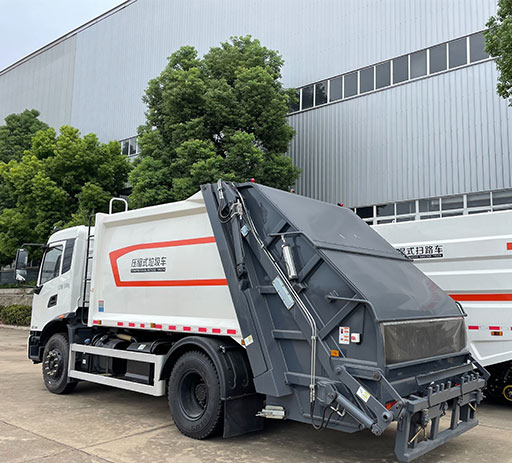Refrigerator for Trucks: The Ultimate Guide to Roadside Refrigeration Solutions

When transporting perishable goods, having the right refrigeration solutions is crucial. Truck refrigeration units offer the ability to keep food fresh, pharmaceuticals safe, and agricultural products viable during transit. In this comprehensive guide, we will explore various types of refrigerators for trucks, their benefits, features to consider, and tips for selecting the best unit for your needs.

An Overview of Truck Refrigeration

Refrigerated trucks, often referred to as “reefers,” are designed to maintain low temperatures during transit. This technology plays a vital role in the logistics of the food industry, pharmaceuticals, and more. With appropriate refrigeration, companies can expand their delivery range while ensuring the safety and quality of their products.
History of Refrigerated Trucks
The concept of refrigerated transportation dates back to the mid-19th century. Initially, ice was used for cooling, but advancements in technology have led to the development of modern refrigeration units. Today, refrigerated trucks utilize advanced compressors and insulation materials to maintain optimal temperatures throughout various weather conditions.
Types of Refrigerators for Trucks
There are several types of refrigerator units available for trucks, each suited for different transportation needs. Here are some main types:
- Transport Refrigeration Units: These units are typically driven by the truck’s engine and are often used for larger long-haul trucks.
- Direct Drive Refrigeration Systems: Ideal for smaller trucks, these units are compact and lightweight, providing an efficient cooling solution without requiring additional power.
- Medium Temperature Refrigerators: Used for products that need to be kept at a controlled temperature, usually between 32°F to 50°F (0°C to 10°C).
- Frozen Refrigerators: Designed to maintain temperatures below 32°F (0°C) for frozen goods.
- Multi-Temperature Refrigeration Systems: Capable of maintaining different temperatures within the same truck for transporting various types of goods.
Advantages of Using Refrigerators for Trucks
Using a refrigerator for trucks offers multiple advantages that can enhance business operations and increase profitability.
1. Food Safety
Maintaining proper temperatures helps prevent spoilage and foodborne illnesses. It ensures that perishable goods remain safe for consumption during transit.
2. Extended Shelf Life
Refrigeration slows down the degradation of food and other perishable items, allowing for longer shelf life. This means less waste and higher profits.
3. Wide Delivery Range
With refrigerated units, businesses can expand their delivery routes and reach customers in more remote locations without the risk of product spoilage.
4. Increased Market Opportunities
Transporting temperature-sensitive items allows companies to enter new markets. For instance, businesses can deliver fresh produce or seafood over longer distances.
5. Compliance with Regulations
Many countries have stringent regulations regarding the transportation of food and medical products. Using a refrigerator helps ensure compliance with these regulations.
Features to Look for in a Truck Refrigerator
When selecting a refrigerator for trucks, there are several key features to consider:
1. Size and Capacity
The size should fit the specific truck model and meet the capacity requirements based on the goods being transported. It’s essential to accurately assess the volume of goods you need to carry.
2. Temperature Control
Look for units equipped with reliable temperature control systems that allow you to monitor and adjust the temperatures as needed to maintain the quality of products during transport.
3. Energy Efficiency
Opt for energy-efficient models that minimize fuel consumption. Refrigerators that use less energy can contribute to significant cost savings over time.
4. Durability
Refrigerators for trucks should be built to withstand harsh roadside conditions. Look for durable materials and robust construction to ensure longevity.
5. User-Friendly Controls
Choose a model with an intuitive control panel that allows truck drivers to easily monitor settings while on the road.
6. Maintenance Requirements
Consider the maintenance needs of the refrigeration system. Units that are easy to maintain can save time and reduce downtime.
How to Choose the Right Refrigerator for Your Truck
Selecting the right refrigerator requires careful consideration of several factors:
1. Assess Your Needs
Begin by identifying the types of products you will transport. Will you be moving frozen pizzas, fresh produce, or pharmaceutical products? This determines the refrigeration type required.
2. Determine Truck Compatibility
Check the specifications of your truck and compare them with the refrigerator’s dimensions and weight. Ensure that the cooling system can be accommodated without exceeding the truck’s payload capacity.
3. Calculate Operating Costs
Evaluate energy consumption rates and possible maintenance costs. Selecting an energy-efficient unit will lead to long-term savings.
4. Consult Experts
Consider seeking advice from seasoned professionals in the logistics or refrigeration industry. They can provide insights based on experience that help you make informed decisions.
Practical Examples of Refrigerator Use in Different Industries
1. Food Delivery Services
Refrigerated trucks are widely used by food delivery services. For example, companies like DoorDash or UberEats may use them to transport perishables from restaurants to homes or businesses, ensuring that food arrives fresh and safe to eat.
2. Pharmaceutical Industry
Pharmacies and hospitals require temperature-controlled transport for medications and vaccines. Transporting these products using refrigerated trucks ensures they remain effective and safe for patients.
3. Agricultural Products
Farmers can use refrigerated trucks to transport fruits and vegetables to markets while preserving freshness. This is vital for products like berries, which can spoil quickly if not kept cool.
4. Seafood Delivery
Seafood wholesalers often rely on refrigerated trucks to deliver fresh catches to restaurants. Maintaining a constant low temperature prevents spoilage and preserves the quality of the seafood during transport.
Maintenance Tips for Truck Refrigerators
1. Regular Inspections
Conduct routine checks on the coolant levels, compressor, and seals. Catching any issues early can prevent costly repairs down the line.
2. Keep It Clean
Maintaining cleanliness inside the refrigerator is essential. Regularly clean the interior and remove any spills or debris to prevent odors and contamination.
3. Monitor Temperature Readings
Use a reliable thermometer to regularly check temperature levels. Adjustments should be made if the readings deviate from the desired settings.
4. Schedule Professional Maintenance
Consider having a professional technician service the refrigeration unit regularly. This can help prolong its lifespan and maintain efficiency.
Cost Considerations for Truck Refrigerators
The cost of a truck refrigerator can vary significantly based on its type, size, and features. Here, we break down the key factors influencing the price:

1. Type of Unit
Basic direct-driven units tend to be more affordable, while complex multi-temperature systems can be more expensive due to their advanced features and technology.
2. Size and Capacity
Larger units with greater capacity will naturally cost more than smaller models. It’s essential to find a balance between size and your practical needs.
3. Brand Reputation
Reputable brands often command higher prices due to reliability and warranties. Investing in quality may save money in maintenance costs over the years.
4. Installation Costs
Don’t forget to account for installation costs when budgeting for a truck refrigerator. Proper installation is key to ensuring the unit functions efficiently.
Frequently Asked Questions (FAQs)
1. What temperature should a refrigerator for trucks maintain?
Most refrigerated trucks should maintain temperatures between 32°F to 50°F (0°C to 10°C) for fresh products and below 0°F (-18°C) for frozen goods. Always consult manufacturer guidelines specific to your products.
2. How do I clean and maintain a refrigerated truck?
Regularly inspect and clean the interior. Remove spills and debris to prevent contamination, and schedule professional maintenance to ensure the cooling unit performs well.
3. Can a refrigerated truck be used for non-food items?
Yes, refrigerated trucks can also transport pharmaceuticals and other temperature-sensitive products, ensuring quality and safety during transit.
4. How energy-efficient are truck refrigerators?
Energy efficiency can vary based on the model and technology used. Look for energy-efficient designs to help reduce operational costs and environmental impact.
5. Are multi-temperature refrigeration systems worth it?
Multi-temperature systems offer versatility, allowing you to transport different products at varying temperatures, making them well worth the investment for businesses with diverse transportation needs.
6. What are the common problems with truck refrigerators?
Common issues include coolant leaks, compressor failures, and electrical problems. Regular maintenance and inspections will help catch these problems early.
